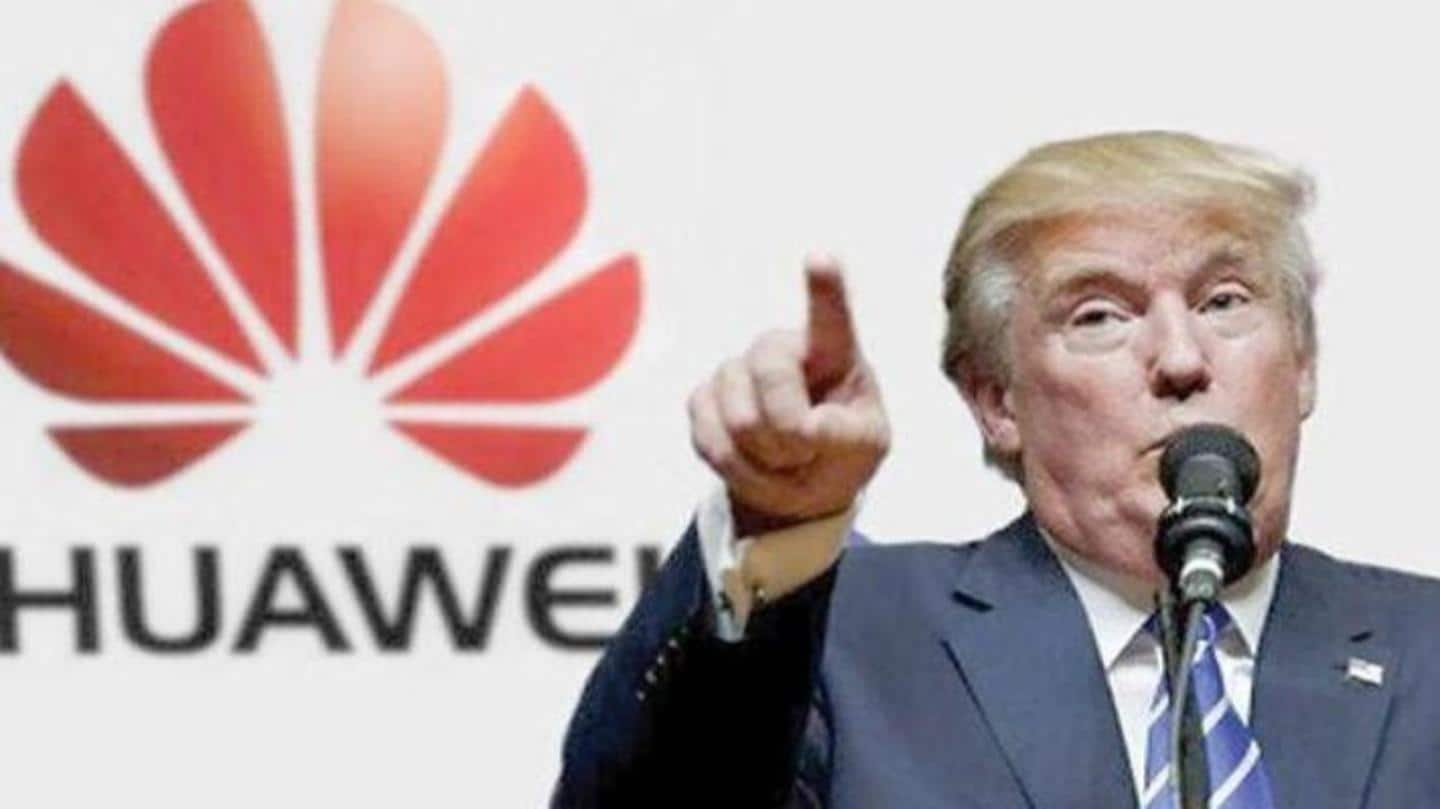
Trump tightens restrictions on Huawei's technology access
What's the story
Just a few days back, US President Donald Trump signed an executive order to pressurize Chinese giant ByteDance into selling TikTok US within 90 days.
Now, Trump has fired another salvo in this trade war by tightening the restrictions imposed on Huawei, known for its network equipment and phones, to cut its access from American technology.
Here's all you need to know about it.
Restriction
US restricted Huawei from accessing American technology
Back in May 2019, the US had imposed a rule to prevent foreign semiconductor manufacturers, which use American software/technology, from supplying chips to Huawei or its affiliates unless they get a license.
It had already placed the Chinese company on its Entity blacklist, barring it from conducting business with US-based companies; this year's restriction further blocks its access to American technology.
Action
Those semiconductor rules are being tightened
Now, the US Commerce Department has expanded the scope of restrictions imposed on Huawei in May and added 38 more of the company's affiliates from 21 countries and four assembly locations on the Entity List.
The action takes the total number of restricted Huawei affiliates, which also includes Huawei Technologies India, up to a significant 152.
Quote
Why the restrictions are being tightened?
"Huawei and its affiliates have worked through third parties to harness US technology in a manner that undermines US national security and foreign policy interests," Commerce Secretary Wilbur Ross told Reuters. "This multi-pronged action demonstrates our continuing commitment to impede Huawei's ability to do so."
Details
New rules will prevent accessing tech through third parties
A US Commerce Department official said that the expanded rules make it clear that the ban imposed in May also covers off-the-shelf chip designs that Huawei tried purchasing through third-party design houses.
"Any use of American software or American fabrication equipment to produce things for Huawei is banned and requires a license," Ross told Fox News while speaking about the tightened restrictions.
TGL
Temporary General License not being extended
Moreover, the Department also confirmed that it will not extend the now-expired Temporary General License that allowed Huawei to work with American companies to offer network, smartphone services.
"The US has provided ample time for affected companies and persons - primarily Huawei customers - to identify and shift to other sources of equipment, software, and technology and wind-down their operations. Now that time's up."
Impact
How this will affect Huawei and its customers?
While the impact of the latest decision is yet to be assessed, we are pretty sure it won't be anything good for Huawei.
The company has already said that US restrictions have affected the supply of its Kirin chips and it won't be able to make more of them starting September.
Plus, the expired TGL license could cut-off Google's support for its older smartphones.